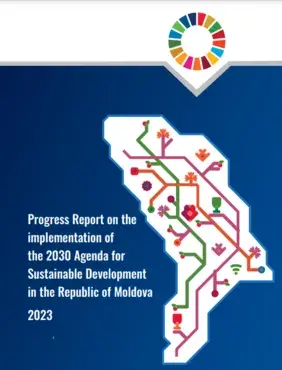In September 2015, the Republic of Moldova, together with 192 other member states of the United Nations, undertook to implement the 2030 Agenda for Sustainable Development by adopting the Declaration of the Sustainable Development Summit held in New York.
This Agenda aims at achieving the Millennium Development Goals at a faster pace, its main goals being eradication of poverty by 2030 and promotion of sustainable development worldwide. The 2030 Agenda for Sustainable Development is complex and contains 17 overall goals and 169 targets covering all key aspects of economic, social and environmental development. Its design makes it possible to adjust to the priorities and peculiarities of each country, thus, the Republic of Moldova has adopted and nationalized the Sustainable Development Goals (SDGs).
By adopting the 2030 Agenda for Sustainable Development, Moldova has undertaken to implement and track progress in achieving these goals at the national level. The combined efforts of key actors are being mobilized to end all forms of poverty, tackle inequalities and address climate change, ensuring that no one is left behind. To this end, SDGs have been adapted to the specific reality of Moldova, national priorities have been identified and specific plans and policies to achieve these goals have been drafted. Moldova has taken into account its particularities and specific needs when nationalizing the SDGs, so as to make it possible to contribute to the sustainable development of the country and to improve the well-being of the population. The 2030 Agenda was adapted as a result of collaboration between the Government, the UN Moldova and the Expert Group, with the analytical support of the latter. The process was transparent, and all decision-makers, development partners, the private sector, civil society organizations participated in the consultations.
This Report was developed with the support of the United Nations Development Program (UNDP) and the United Nations Population Fund (UNFPA) with the contribution of national experts Veronica Crețu and Marcel Spătari.


